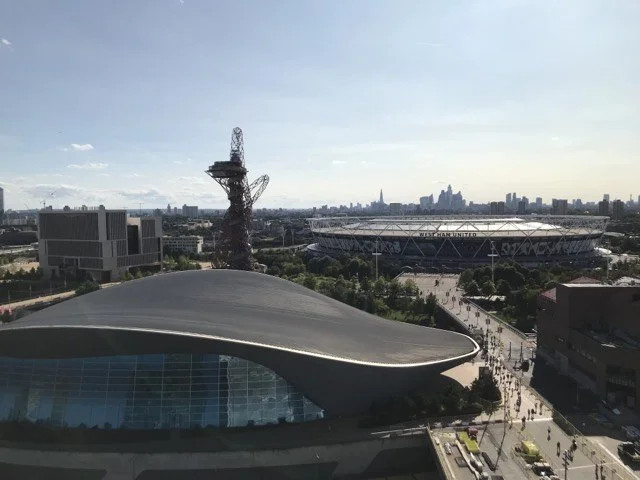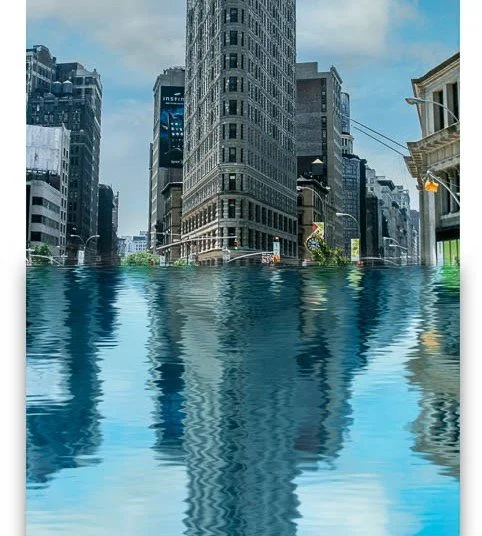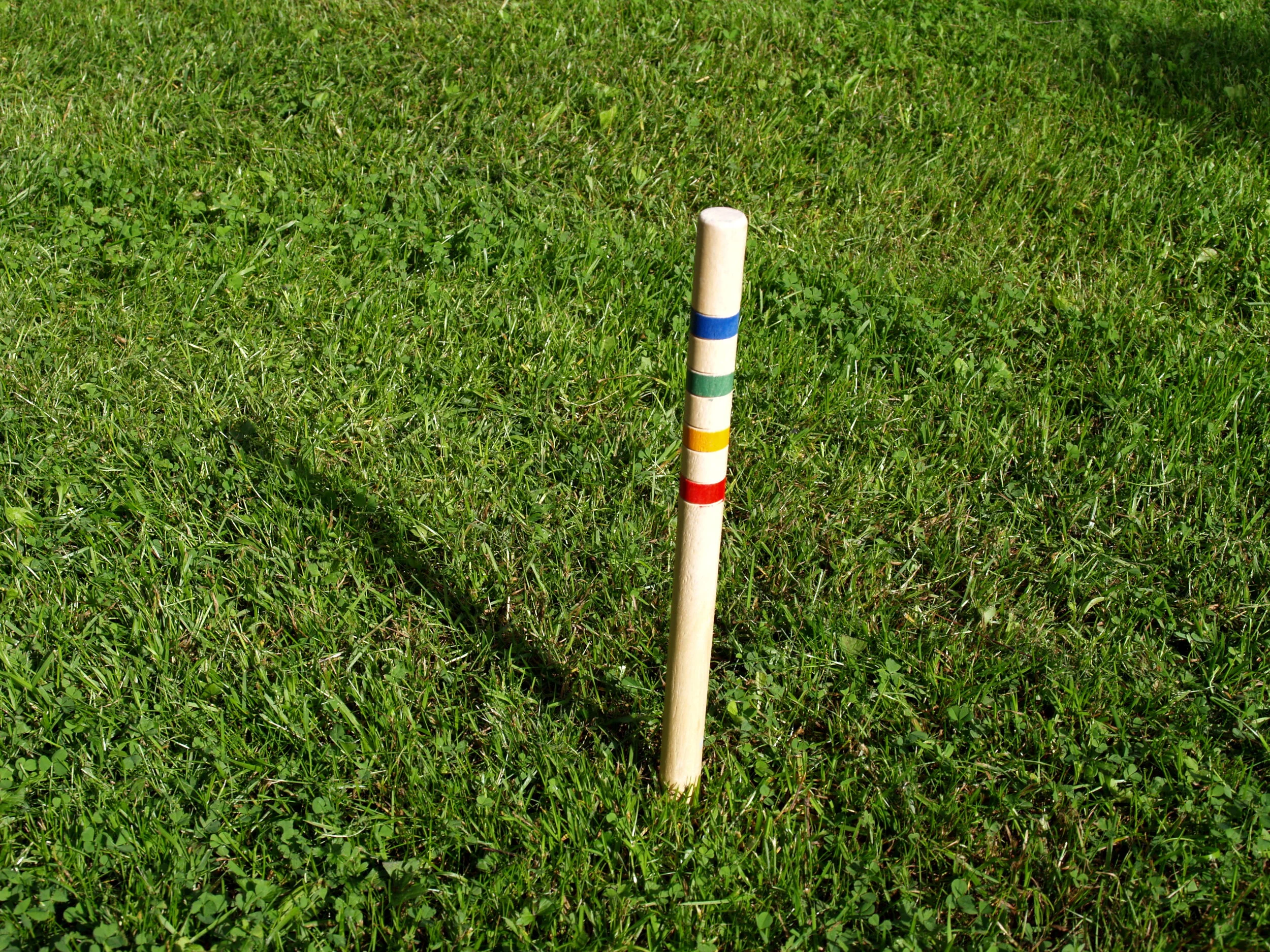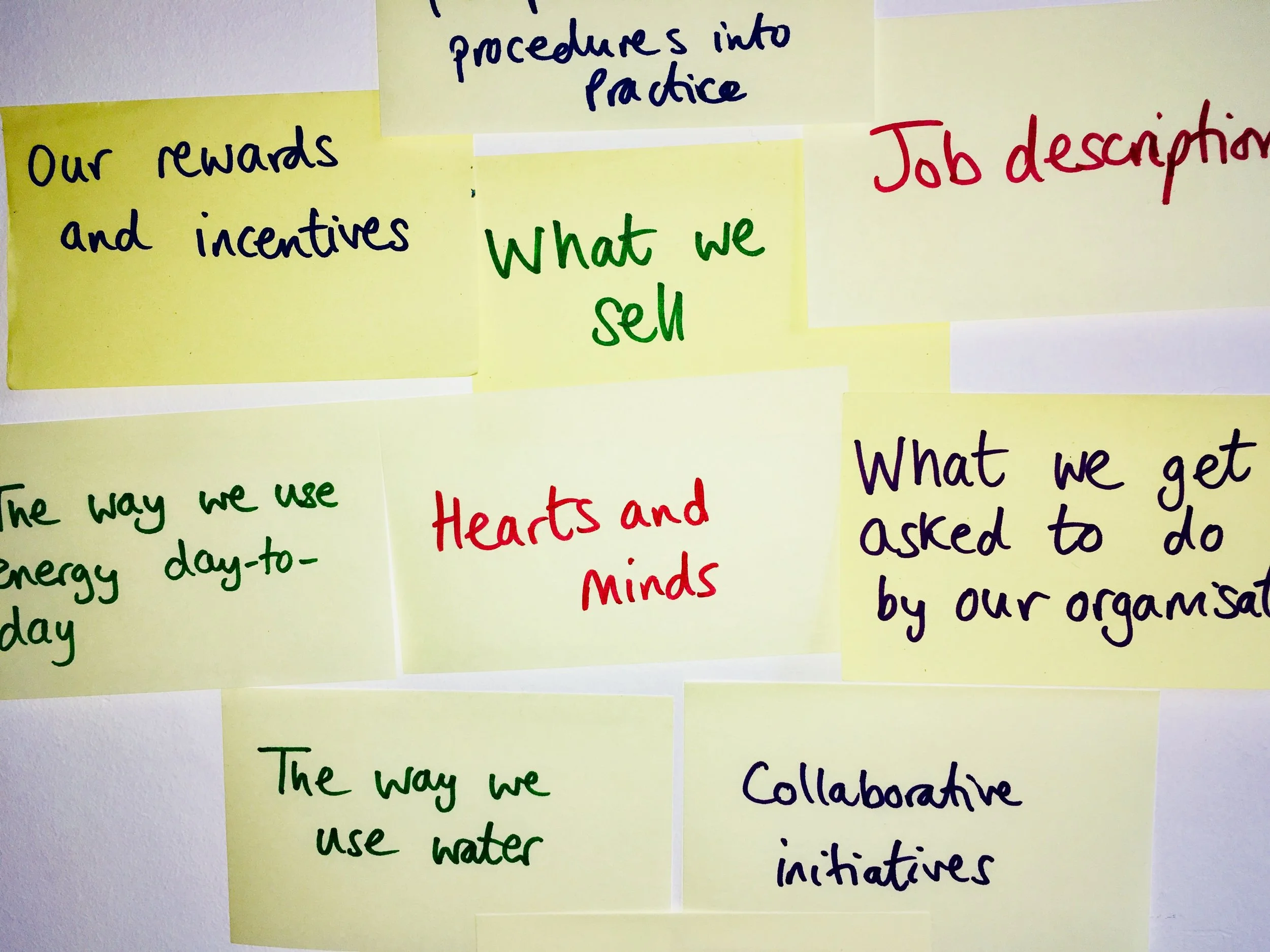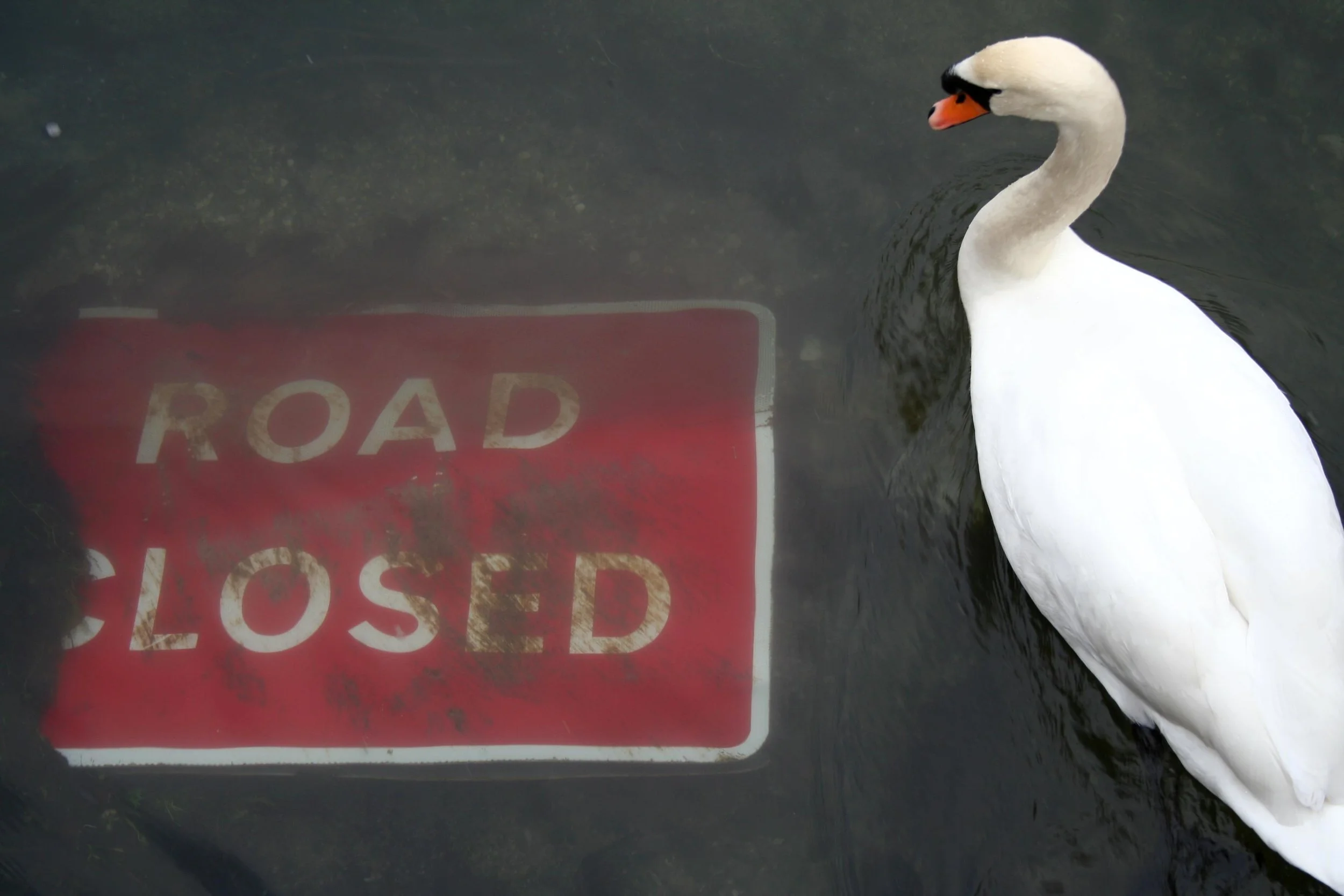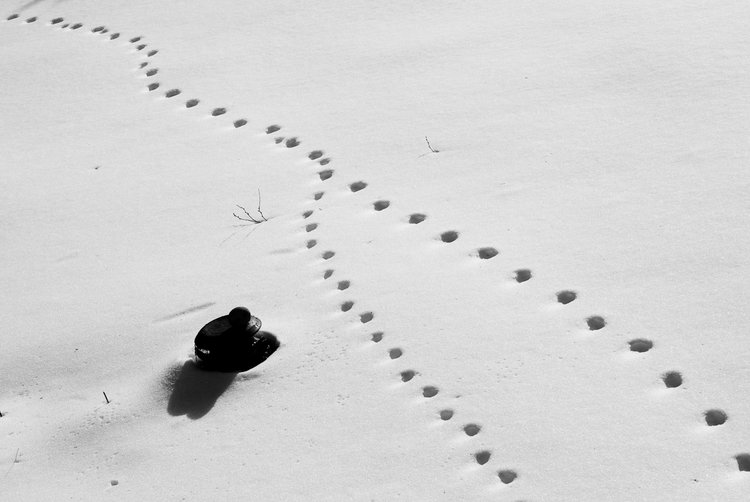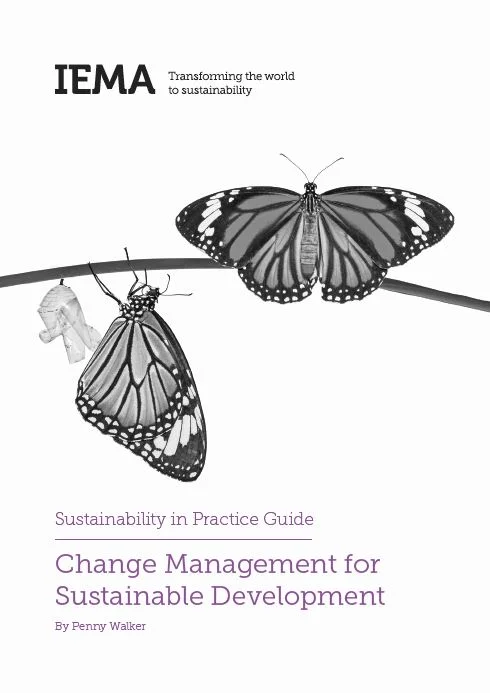Earlier this month I stood on a 10th floor roof terrace, looking out over the Queen Elizabeth Olympic Park. In front of me were the sweeping curves of the aquatics centre, the delicate frame of the London Stadium and the frankly disturbing tangle of the Orbital.
Troika consulting
I explained my dilemma to the other two people in my ‘troika’ group, and then turned my back. For the next few minutes, they discussed the problem as if I wasn’t there. I heard empathy, I heard honesty. They were free to talk to each other about what I’d said without worrying about me becoming defensive, or correcting them. They also said what they’d intuited about what I’d not said. It was liberating for us all.
Doing the sustainability team a favour
Does it sometimes feel as if your colleagues treat their sustainability actions as a favour to you?
I'm working with a couple of in-house sustainability teams at the moment, whose situations have strong similarities, despite one being a global brand and the other a public sector agency. The teams have hats which are familiar to most in-house sustainability specialists:
Spinning stories to dream the better future
It's 2140, and the most popular reality TV show is a live-stream of Amelia Black transporting polar bears to the Antarctic in her airship as part of assisted migration. In New York, housing is run by cooperatives and buildings have been waterproofed below the high tide line. Sky-scrapers have had docks added part-way up for speed boats, and there are floors dedicated to food growing. This is the setting of Kim Stanley Robinson's New York 2140, a classic of post-climate fiction with an optimistic outlook.
A matrix to have up your sleeve
What 'might' a sustainable future look like?
I've been reading a lot of stories this year, and exploring creative writing. This has been a treat and I've seen it as an alternative to working or the news. But of course, there's sustainability and change-related learning there too if you look for it. So here's a combination of an exercise from Tim Clare's 100 Day Writing Challenge, and ideas from some of the utopian fiction and positive sci-fi (solar punk) I've been reading.
Getting sustainability onto your organisation's risk radar
Given the unprecedented year we’ve had, lots of organisations are thinking much more seriously about risks and contingencies. What can you feed in to risk assessments or your organisation’s risk register, from a sustainability perspective?
The stake in the ground - a change strategy
What's your mandate?
What might change, when an organisation changes?
When you think about the changes you want to bring about, to make your organisation or sector more sustainable, what do you see changing? Do you have blind spots about where change might happen, and how deep or how obvious it will be?
Edgar Schein’s Three Levels of Culture model is a great way of understanding what might change, as an organisation or other entity changes. It’s useful to think very widely about the kinds of things that might change – or need to change – to get us on track for sustainable development.
Managing the change to sustainability
Croner-i’s “Environment” magazine asked me to share key insights from Change Management for Sustainable Development. That article is out now, in the spring edition (no. 74).
You can download it here.
Tldr:
Understand where your organisation is now…
The 'do they really mean it?' test
Sustainability initiatives! Low-carbon innovation; gender equality; getting rid of single-use plastics; well-being.... In-house sustainability change makers and the consultants who help them are forever devising and launching initiatives and campaigns to get colleagues to do things differently. Sometimes colleagues take them up whole-heartedly and they develop a life of their own. Sometimes you get feeling people are sighing and rolling their eyes, waiting for it to fade away. What makes the difference?
The business case for sustainable development
If you want sustainability to move from being a nice-to-have, to being a must-have, at some point you will need to show that there’s a business case for it: that your organisation will meet its core mission better, faster, cheaper by paying good attention to sustainability than by ignoring it.
What does the business case look like in your organisation?
Surf's up!
Our opportunities to change things can come from unexpected directions. A new CEO who wants to shake things up. A sudden upsurge of public enthusiasm for naked shampoo bars or reusable cups. A cost-cutting drive.
How can you make the most of these changes from elsewhere, and surf them expertly to get things moving in a sustainable direction?
New beginings - starting a new job
What has the snow revealed?
The Beast from the East has blanketed much of the UK with its beautiful sparkles, covering up roads, railways lines and in some cases front doors.
But the snow has also revealed things that aren’t usually seen: particulate pollution, uninsulated roofs, space which could be reclaimed from traffic for pedestrians and cyclists, and the impoverished nature of our soil.
Change management for sustainable development - 'a coach in your pocket'
Are you an environment or sustainability specialist, working to help your organisation step up to its role in bringing about a sustainable future? Want to make more of an impact? I want you to as well! Which is why I was so pleased when IEMA invited me to write a second edition of Change Management for Sustainable Development.
And when one of our peer readers said "it's like having a coach in your pocket", I was really happy, because that's exactly what I wanted it to be.
